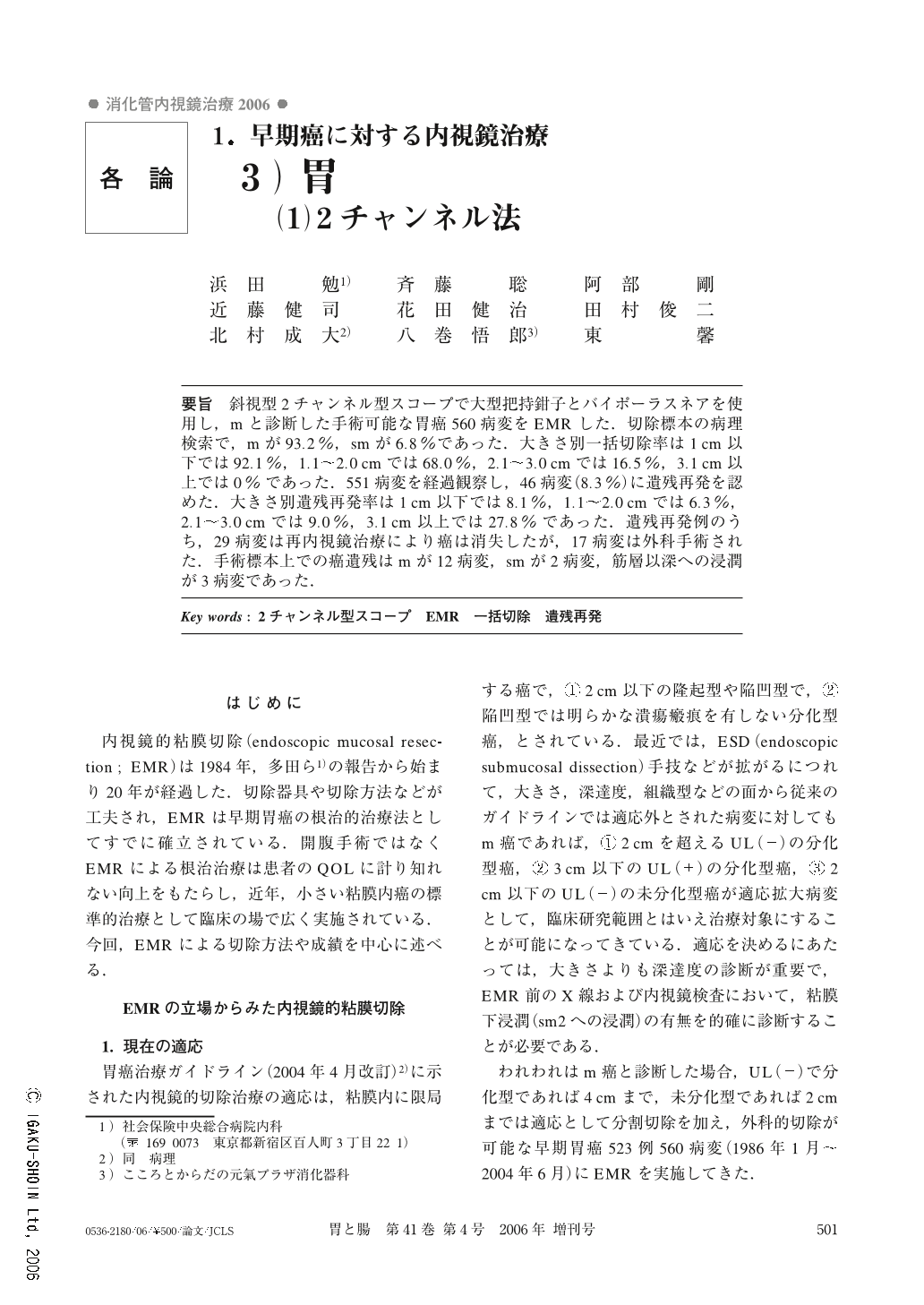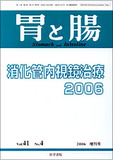Japanese
English
- 有料閲覧
- Abstract 文献概要
- 1ページ目 Look Inside
- 参考文献 Reference
要旨 斜視型2チャンネル型スコープで大型把持鉗子とバイポーラスネアを使用し,mと診断した手術可能な胃癌560病変をEMRした.切除標本の病理検索で,mが93.2%,smが6.8%であった.大きさ別一括切除率は1cm以下では92.1%,1.1~2.0cmでは68.0%,2.1~3.0cmでは16.5%,3.1cm以上では0%であった.551病変を経過観察し,46病変(8.3%)に遺残再発を認めた.大きさ別遺残再発率は1cm以下では8.1%,1.1~2.0cmでは6.3%,2.1~3.0cmでは9.0%,3.1cm以上では27.8%であった.遺残再発例のうち,29病変は再内視鏡治療により癌は消失したが,17病変は外科手術された.手術標本上での癌遺残はmが12病変,smが2病変,筋層以深への浸潤が3病変であった.
Endoscopic mucosal resection (EMR) has made it possible to do radical therapy for early gastric cancers in resectable cases. Viewed from the standpoint of the quality of life, EMR has brought good news to patients who would have been recommended to undergo surgical operation until twenty years ago. Nowadays, which therapy they should select, EMR or operation is a very important decision for the endoscopist and surgeon. In EMR we usually used two-channel oblique-type scope and removed carcinomas with large sized grasping forceps and a bi-polar snare.
We discussed as follows ;
1 ) The 523 cases with 560 lesions of early gastric cancer diagnosed as limited to the mucosa and less than 40 mm in size, and which were treated either by whole-block resection or by partial resection, were analyzed to determine the recurrence rate for each method of resection.
2 ) The pathological survey of EMR specimens revealed that in 38 cases (6.8%) the cancers had invaded the submucosa. However, we judged that, when this invasion was limited to less than 500μm, lymph node metastasis was very rare, so surgical operation was not indicated.
3 ) The recurrence rate in the followed-up 551 lesions was 21 lesions (15.1%) of 139 lesions that had been treated by whole-block resection. Among the remaining 421 lesions, that had been treated, as occasion demanded by both methods, 25 lesions (5.9%) had recurrence.
4 ) The management of recurrent cancer, recognized at the follow-up examination after EMR, is very important for the patients because they are still operable cases. 87.0% of the recurrent cancers were diagnosed within one year after EMR, so, in this period, careful follow-up examination should be made. The therapy used for these recurrent cancers was re-EMR for 29 cases and surgical operation for 17 cases.
It is considered that EMR is a standard therapy for small sized early cancers instead of operation and resection with the marking procedure is very important to remove the cancers completely.

Copyright © 2006, Igaku-Shoin Ltd. All rights reserved.


